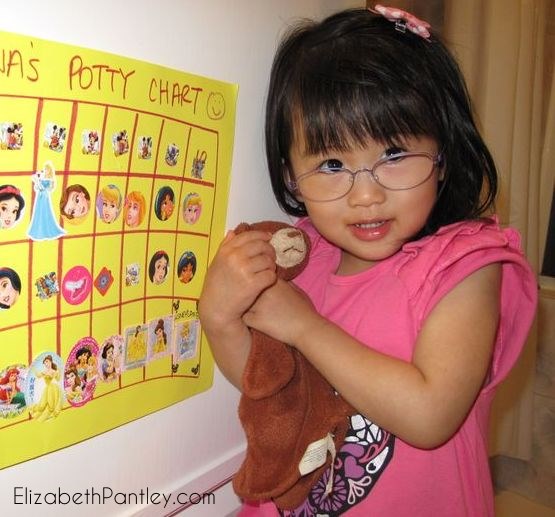
As with any parenting issue, there are plenty of strategies and recommendations when it comes to the right approach to potty training. Should you throw a potty party with prizes, songs and dancing? Or should you take a reserved approach and simply acknowledge that your child has done well? What’s the best way to encourage potty training success, so that you can move on from all things diapers?
What Works Best?
The question above is missing one simple phrase, and the real question you should ask yourself is, “What works best for our family?” I use the word, “family” instead of, “child” because your child is not the only one in the family with a unique personality, and your approach to potty training should fit all of you, and your family style.
Some parents are naturally more enthusiastic and regularly break into a song and dance number in the kitchen over any new success. Other parents are more matter-of-fact and reserved. Both methods can be very effective, especially when partnered with the needs of the individual child.
What about your child’s unique personality? Does your child love to be the center of attention? Or would she rather do what she knows how to do without a whole bunch of fuss? Think back to how you have taught your child to do other things like feeding herself, building a block tower, or anything else. What approach has been most comfortable and natural for all of you?
Potty training does not need to be a monumental task, it can be as straightforward as all the other skills you teach, and as natural as any other learning process. Your children learned to crawl, walk, and speak under your nurturing care so they can certainly learn to use the potty with your guidance, too. The most important thing is that your child should know that you support him and are proud of his efforts all along the way. This support can be effectively expressed in calm assurance or loud cheers, depending on your family atmosphere.
Be Patient
Many parents hear stories or read articles about quick potty training methods, and wonder if it can really be done in a day. The reality is that for the majority of children it takes three to twelve months to achieve daytime toilet independence! Considering this information, it is helpful to take the pressure off and follow your child’s lead with confidence that your youngster will eventually be potty trained.
It is also important to keep in mind that how old children are when they master toileting has nothing whatsover to do with intelligence, and it’s not an indicator of future abilities. Toilet independence mostly has to do with readiness skills and physiological factors. The potty training process is much more likely to go smoothly if you wait until your child is ready, and then don’t rush the process.
You do not want the potty training experience to be stressful or frustrating for your child or for you. Work together as a team in the manner that best matches your personalities. And move forward to teach your child new toileting skills as a positive experience for the whole family.
Tips from The No-Cry Potty Training Solution



























